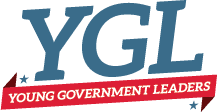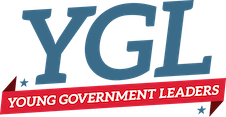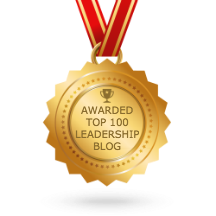
Changing Demographics via Flickr by Knoll Inc, CC BY-NC-ND, 2.0
GovExec recently reported that the IRS sees a looming demographics crisis caused by low recruitment of younger workers coupled with an ever-growing share of its workforce eligible for retirement: 40% by 2018. As Commissioner Koskinen put it, “…if we don’t have enough young workers in the pipeline, the IRS will have great difficulty developing the next group of leaders it needs 5 or 10 years down the road.”
This isn’t just one agency’s challenge. According to OPM, less than 1% of the federal workforce was under the age of 25 in 2013, and approximately 6.5% was under 30. Analysis by Deloitte suggests this isn’t because younger workers aren’t interested in federal service, but because there haven’t been enough jobs available to the average young person interested in federal service. To make matters worse, the wave of retirements may start sooner than 2019. The GAO reports that 30% of the federal workforce will be eligible to retire by September 2017 and that attrition from the federal workforce has been increasing since 2012.
In searching for tomorrow’s leaders to carry on the valuable work our federal agencies perform and to secure the legacy today’s leaders will leave behind, agencies must seek new solutions. Luckily, they have a valuable and often overlooked asset in this quest: their existing young workforce. No one understands young potential recruits like their peers inside the government. It’s like having a free market research group inside your agency. This is a group of people who are passionate about serving the public and craving opportunities to make a difference. Agencies can use them to help fill the pipeline of future leaders.
Unfortunately, one of the biggest reasons Millennials leave government is because they feel disconnected and their careers are stagnant. With that in mind, here are three potential solutions to resolve the looming government demographic crisis involving recruitment and retention:
- Have Employee Resource Groups (ERG) catering Millennials. Research has shown, that ERGs are a proven way not to only raising cultural awareness but to increase retention.
- Develop a portfolio of learning and development opportunities encompassing mentoring, coaching and leadership development programs. Millennials crave constant learning. Limited budgets hinder the growth of young employees needing training to move their career forward.
- Highlight programs that benefit work-life balance. In other words, embrace the motto work hard play even harder.
But it won’t be enough to change the way young people are recruited or the programs agencies implement to keep them engaged. Agencies must also be open to changing how they think about jobs, career paths, and workplace culture in order to ensure that there is a constant flow of new ideas and fresh blood revitalizing the federal government. Federal agencies, like all workplaces, are beginning to feel the influence of new generations on their standard practices. This is a chance to start a dialogue with young workers and future recruits. The agencies and leaders who are most open to new ideas will be the ones that succeed at sustaining their workforce of the future. As a result, agencies will be able to successfully continue implementing their mission. In addition, they will be at the forefront of building a better model of federal service for employees of all ages, which will be a competitive advantage when seeking top talent.
As President of Young Government Leaders (YGL), I’ve had the privilege of talking to many of my peers inside and outside our organization. I’ve heard their passion for service, their enthusiasm for the mission, sense of innovation and creativity, and their burning desire to stand up and be counted. When we bring them together for trainings, events, and conferences, we hear one question above all else: “How can I make a difference?” Allowing us to lead the way in resolving this demographic crisis is one answer to that question. The federal government has many challenges to face in the years ahead and all those we serve are counting on us to find a way forward. We won’t let them down.
This piece was written by Joseph Maltby with contributions from Miguel Joey Aviles.
Miguel Joey Aviles is the President of Young Government Leaders, the only 501 (c)3 non-profit professional organization founded by, and led by, young government employees. He is an emerging leader advocate and works as a Program Manager in Leadership Development at a federal agency.
Joseph Maltby is the YGL Research and Advocacy Director, overseeing research for the organization as well as helping YGL use the results to inform the public about the interests and needs of the next generation in government. He is a change management consultant for a federal agency.


